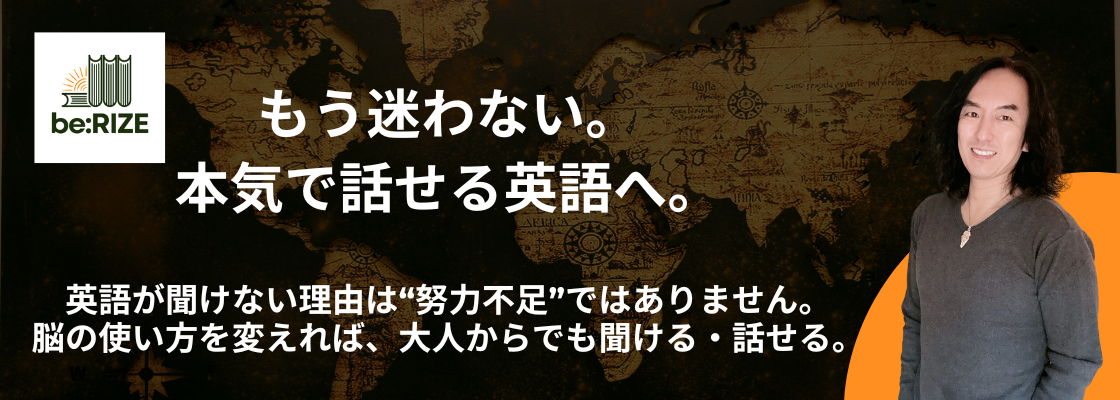I came across this interesting quote today by James Farmer, a civil rights activist and leader in the American Civil Rights Movement.
公民権運動にて人権活動家としてリーダーをしていたジェームス・ファーマーの興味深い引用を見つけたわ。
We do what we have to so we can do what we want to.
私達がやるべきことをやる、そうすると私達がやりたいことができる。
It is a fairly simple phrase, yet, it captivates me in that it seems to ring true for many of the things that I have aspired to do.
The reason I chose this quote was to prepare you for my very “fascinating” blog topic this month – studying.
I know, I know, I can hear your internal groaning at the mention of the word.
Yet, in my opinion (and in James Farmer’s opinion), we do what we have to so we can do what we want to.
それはとてもシンプルはフレーズだけれ ども、私がそうしたいと思っている沢山のこと が真実になっているような気がして
私が心を奪われたの。
なぜこの引用を私が選んだかというと、ちょうど今月の勉強になる「素敵な」ブログトピックを考えていた時に見つけたものなのよ。
分かってる、分かっ てるわ、私がその言葉を述べたことについて自分でもちょっと変に思うのはね。
だけど、私の意見として(あとジェームス・ファーマーの意見としても)私達はやるべきことをやるから、やりたいことができるのよ。

There are so many opinions about how to study and what to study, and believe me, I do not have all the answers.
But, what I can do is share with you how I study and some of my ideas on unique ways of studying to learn language.
どう勉強するか、何を勉強するかについて沢山の意見があるけれども、私を信じて。
すべてを答えることはできないけれども、私が出来ることは私がどのように(日本語を)勉強しているかや、言語を勉強するために面白い方法でのアイデアをいくつか紹介することよ。
Namely, what I do for studying Japanese is I try to focus on all the aspects of the language.
I try to spend time on grammar, listening, speaking, reading, writing, and vocabulary.
For grammar, all I really do is study from various textbooks.
I actually have a private Japanese teacher and I usually study grammar with her.
つまり、私が日本語を勉強する時に大事にしていることは、言語のそれぞれの部分どれもに集中するようにして勉強することよ。
グラマー・リスニ ング・スピーキング・リーディング・ライティング・ボキャブラリーの全てに時間を費やそうとしているわ。
グラマーの勉強に関しては、私が実際していることは、様々なテキストを使って勉強することよ。
そう、私はマンツーマンでの日本語の先生がいて、彼女とよくグラマーについて勉強しているわ。
For listening, I download a Japanese language podcast from online to my walkman and I sometimes listen to it on the train.
There are many language podcasts out there.
I highly recommend searching for something you like online.
iTunes has quite a bit of language learning tools, so that’s a nice place to start. You could also try listening to radio programs in English.
Lastly, probably my number one recommendation for listening, though, is transcribing.
Transcribing is when you listen and write down what you hear and then check it for accuracy – so you probably will need a script to check it.
This technique forces you to listen to all the aspects of the conversation and I also think it teaches how to actively listen.
I think listening in your native language is quite different from listening in a foreign language and transcribing helps you to learn the difference.
リスニングはオンラインから日本語のポッドキャストをウォークマンにダウンロードして時々電車の中で聞いているわ。
ポットキャストは沢山の言語のものを扱っているのよ。
あなたが好きなことについてのポッドキャストを聞くことをオススメするわ。
itunes は言語の勉強のツールとして沢山あるので、勉強を始めるには良いと思うわ。
また、ラジオで英語の番組を聞くこともおすすめするわ。
リスニ ングで最近の私の一番のおすすめは書き写すことよ。
書き写すということはあなたが聞いたものを書いて、なんと聞こえたかをちゃんと確認することよ、そのためには確認するためのスクリプトが必要にはなると思うけれどもね。
このテクニックは会話の全てを聞くことができるようになり、どのようにもっと聞けるようになるかを教えてくれると思うわ。
日本語のリスニングと他の言語のリスニングはかなり違うと思うし、書き写することでがその違いについてを勉強することができると思うわ。
For speaking, I usually meet with a friend once or twice a week to practice conversation.
The only recommendations for speaking that I have are to come prepared with a topic you’re interested in and to keep your topics varied to help expand your speaking vocabulary.
Furthermore, you might like to try recording your speaking sessions as well.
This helps you to hear the mistakes that you make.
In addition it can help with your pronunciation because you can try to copy your lesson partner’s way of speaking.
スピーキングについては、週に1,2度友人に会って会話の練習をしているわ。
スピーキングで私が知っている唯一おすすめすることはあなたが興味があるトッピックを準備してレッスンで話したり、あなたのスピーキングの語彙力を伸ばすためにそのほか様々なトピックを準備しし続けることよ。
さらには自分が話しているところを録音することね。
それは自分の間違いを聞くことができるからね。
もうひとつ付け加えると、発音の勉強にもなる わ、なぜならレッスンパートナーの話し方を真似することができるからね。
In my mind, reading helps to improve vocabulary and grammar and it also helps you to see the natural way of speaking.
Often times I find when I want to say something in Japanese and I translate it from the English in my head, Japanese people say to me —
"uh, we just don’t say it that way", and then they correct me with the correct “natural” way of speaking.
I don’t know if any of you have had that experience, but I think if you read, you will be able to see more of the natural phrasing of English.
Of course there are many reading sources out there, but you can check out children’s books, magazines, and/or online websites.
私が思うには、リーディングはボキャブラリーと文法を上達させることができて、あとは自然な話し方を知ることができると思うわ。
私が何か日本語で 言いたいことがあった時、日本人が私に「うーん、私たちはそのようには言わないよ」と言うように私の頭の中で英語から日本語に訳していることをよくしていることが分かったわ。
彼らが私に正しい自然な言い回しを直してくれるようにね。
皆さんにこういう経験があるかどうかは分からないけれど、もしあなたが(英語の本などを)読んだら、もっと英語の自然なフレーズなどを知ることができると思うわ。
もちろん沢山のリーディング勉強方法 はあるけれども、子供向けの本、雑志やウェブサイトもチェックしてみてくださいね。
Another option for improving your speaking is, in my opinion, writing in a journal.
Now this one I don’t do nearly as much as I should, but I think it is a great tool for improving your conversation skills actually.
In my view, writing helps you to put into words the things you want to say, but take you a long time to figure out how to say it. Speaking happens so fast, so you don’t have a lot of time to really say things the way you really want to say them, but when you write you have all the time in the world to piece together your sentences.
And then when you learn how to write them, you learn how to say them. So the next time you want to say one of these difficult sentences you will be well prepared because you wrote them in your diary.
あなたのスピーキングを上達させるための他の方法は、私の意見として日記を書くことよ。
それは私もしなければいけないことなのだけど今できていないわ。
けど日記を書くことはあなたの会話のスキルを上達させるのにとてもいい方法だと思うわ。
私の考えとして、書くことはあなたの言いたいことを ちゃんと言葉にすることを助けてくれるからね、けれど、なんと言えばいいのかを考えるには時間がかかるけれどね。
スピーキングは(頭の中で考える時間なく)どんどん起こること、だから本当に言いたいことを口にだすのに
考える時間がないということよね、だけど書くことであなたの書いた文ひとつひとうがつながり
長い文章になるようになるわ。
そしてどうやって書けばいいか分かったら、どうやって言えばいいのかも分かると思うわ。
そしたら何か難しい文章一つ を言いたいと思ったら、次回はきっとちゃんと準備できると思うわよ、なぜならあなたはそれを日記に書いたと思うからね。

My last language point is vocabulary.
And as we all know, we can all improve our vocabulary.
Even I would like to improve my English vocabulary as well as my Japanese vocabulary.
I don’t have any great recommendations for this category though.
I basically use a software program that is similar to using flash cards.
It is called Anki and you can look it up online if you are interested.
It is actually kind of neat because you can select if the word was easy or hard for you and the words that are hard for you it shows you more often and the words that are easy for you it shows you less often.
This allows you to spend more time on the words that you are not good at.
Another idea is to try to use at least one new word in each of your lessons or in your journal writings.
最後に言語習得のポイントについて紹介するのはボキャブラリーよ。
皆さんもご存知の通り、全部のボキャブラリーを知って上達するということは出来ないと思うわ。
日本語の単語同様私でさえ英語の単語をもっと
勉強したいと思っているくらいだものね。
ボキャブラリーを上達させるというカテゴリーに関してはとてもオススメというのがないのだけど、基本的にはフラッシュカード(単語帳)に似たものがソフトウェアのプログラムにあるのでそれを使っているわ。
それは「アンキ」と言って、もし興味があった らオンラインで調べることができるわ。
そのプログラムはとてもちゃんと出来ていて、というのも自分が難しいと思ったものは頻繁にでてきて、簡単と 思うものはあまりでてこなくなるのよ。
それはあなたの苦手な単語にもっと時間をかけることができるということね。
その他のアイデアとしては、レッ スンの時や日記を書く時に最低1単語は新しい単語を使うようにすることね。
I have a few other thoughts regarding language learning.
One is about culture.
I believe culture and language often go hand in hand and the more you understand one the more you understand the other.
So, try to learn a little bit about culture from time to time –
holidays, movies, television, history, famous stories, famous people etc.
may help you understand more about the language.
Secondly, I think it is important to set goals for yourself to keep motivated.
As we all know, learning a language is a daunting task that can take years to master, so it is easy to lose motivation.
Often times I think to myself,
"why am I even doing this…I just want to give up.
But then I remember if I quit I will never get better", so it’s important to keep going and keep trying.
And finally, try to use the language, as you intend to use it. For example, you can use English with your friends on Facebook or you can make food using English recipes or maybe you can even take a class (other than B Cafe) or attend a seminar in English.
Try to find some small ways to fit English into your life.
I know many people tell me it is difficult in Japan because everything is in Japanese, so you probably have to make it a point to put English in your life if it doesn’t fall naturally into it.
他に言語習得に関していくつか紹介したいことがあるわ。
一つ目は文化についてよ。
文化と言葉はつながっていて、もしあなたがどちらか(文化か言 葉)をまず理解すれば、もうひとつのほうも理解ができると思うわ。
だから時々文化についても考えてみて、
例えばその国の休日、映画、テレビ、歴史、有名な物語、有名人などなど、それらがもっとその言語について理 解させてくれるわ。
2つ目はその言語を上達させたいと高いモチベーションを持って、目標をつくることが大事だと思うわ。
皆さんも知っている通 り、言語を習得することは気が遠くなるほど時間もかかるわよね、
だからすぐにモチベーションが下がってしまいがちよね。
私はよく自分にこう言い聞 かせるのよ、
「なぜこんなことをしているの、諦めたい….だけどいま諦めたらこのままずっと上達はしないと分かっているわ」と。
だからずっと続けて、ずっとトライし続けることが大事なのよ。
そして最後の3つめはどんどんその言葉を使うように意識してどんどん使うことよ。
例えばお友達と英語で話したり、Facebookでは英語を使うようにしたり、英語のレシピを見て料理を作ったり、あとは(b でのレッスンだけでなく)英会話のレッスンに通ったり、英語でのセミナーに参加してみたりするといいと思うわ。
あなたの生活のなかに少しでも英語を使うところを探してみてくださいね。
よく日本では全てが日本語だから英語を使うことは難しいと言うのはもちろんよね。
もし自然に英語を使うことができなくても、あなたの生活の中に英語を使うポイントを作ってみてね。

Well, those are my thoughts about learning language.
What are your thoughts?
What tips do you have for me?
I’d love to hear them!! I’m always looking for more interesting and creative ways to learn Japanese.
I really enjoy learning language actually and I hope you do to!
See you soon.
今回は言語習得についての考え方を紹介してみました。
あなたの考え方は何かしら?
私へのヒントはありますか?
ぜひそれについて聞きたいわ!
私はいつでも日本語を習得するための面白く、創造的な方法を探しているわ。
言語を勉強するのはとても楽しいし、皆さんも楽しみながら勉強 してくれたら嬉しいわ!
See you soon!

Jackie
















